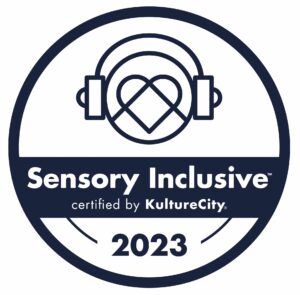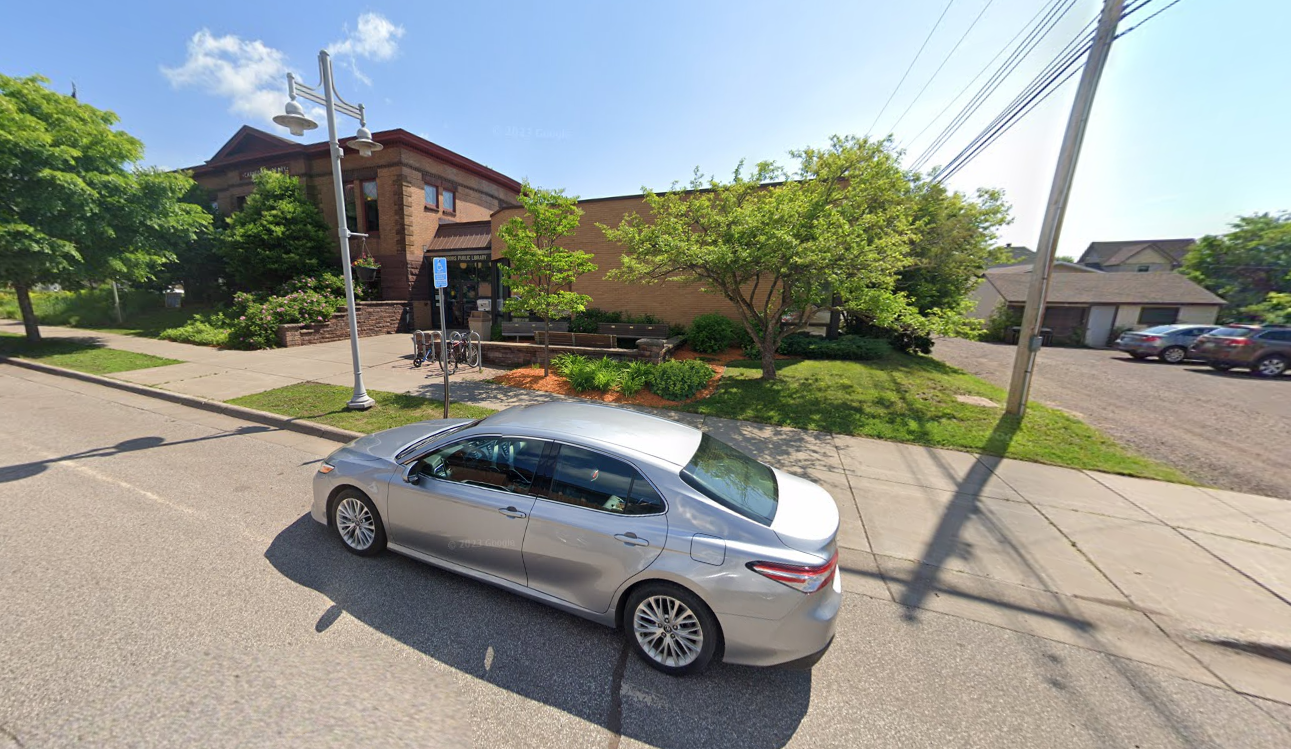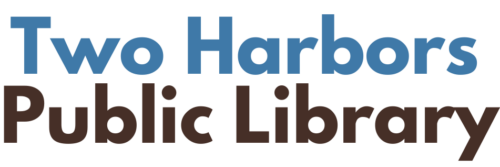
Two Harbors Public Library has partnered with KultureCity® to enhance our ability to assist and accommodate guests with sensory needs.
Our goal is to provide an inclusive experience for all guests during all events. We strive to raise awareness of the needs and challenges faced by individuals with sensory processing needs by supplying our staff with annual training and by offering the resources and accommodations below to our guests.
KultureCity® Sensory bags
KultureCity® Sensory bags containing special KCVIP badges, feeling thermometer, fidget tools, and noise-canceling headphones are available for checkout at our circulation desk.
Weighted Lap Pads
Weighted lap pads are available upon request at our circulation desk.
Quiet Areas
Quiet areas are located upstairs, and in the Archives Room.
Headphone Zones
Headphone zones (loud areas) are located in the children's area, and in the Meeting Room.
Social Story and KultureCity® App
Download the KultureCity® App to get your social story to help you further with your visit to Two Harbors Public Library:
• App Store: http://bit.ly/KCiphone
• Google Play: http://bit.ly/KCandroid
Sensory Inclusive™ Initiative FAQ
What is the KultureCity® Sensory Inclusive™ Initiative?
The Sensory Inclusive™ initiative is designed for businesses and organizations to best prepare for clients or guests that might have sensory needs/sensory processing challenge. This includes arenas, airports, zoos, medical facilities, events, government services, restaurants, libraries or first responders to name a few. The goal is to impact any area someone with sensory needs may want or need to connect with others.
What is a sensory need or sensory processing challenge?
A sensory need or sensory processing challenge is one where an individual is affected by noises, smells, lights and even crowds differently than others. The interaction with their environment can not only be overwhelming from the sensory perspective but also sometimes physically painful. Because of this, these guests often find themselves isolated from the community.
What is the difference between being Sensory Inclusive™ and sensory friendly?
Sensory friendly is where the location has removed many of the overwhelming stimuli for a set period of time. Because this isn’t possible to do regularly due to branding or the style of event itself, access is limited to the day, a few hours, or an event location.
There is often no training provided, no additional supports, generally marketed at the autistic community which alienates others with sensory needs and having set times often makes it hard for those with sensory needs to attend as they are regularly set on weekdays during work hours.
Being Sensory Inclusive™ changes that. It creates daily accessibility with training, tools, and other modifications that do not remove the overwhelming stimuli, they help the guest cope with this potential sensory over stimulation or under stimulation better, ensuring an accepting and inclusive experience for all.
What are some groups that are affected by sensory need/sensory processing issues?
These could be guests with PTSD, autism, early onset dementia, anxiety, stroke patients just to name a few.
How does partnering with KultureCity® help?
KultureCity® helps by providing the necessary training to better support guests with these needs. They also provide signage, weighted lap pads, sensory bags that contain noise-canceling headphones, fidgets tools and much more to truly create a welcoming experience for these guests.
What is the result of this initiative?
It helps all guests feel welcome and included in our society. It also helps us reach a huge portion of our community that has long been isolated.
How many people have a disability in the USA?
1 in 4. With 16% having visible disabilities and the remanding 84% with invisible disabilities like PTSD, autism, dementia, strokes etc. The common denominator for these groups are sensory issues.
Inquire at the front desk to borrow these accessibility tools during your stay at the Library.
- KultureCity® Sensory bags (Contains special KultureCity® VIP badges, feeling thermometer, fidget tools, and noise-canceling headphones.)
- Weighted Lap Pads
- 2 Adult Ear Muffs
- 2 Large Font Keyboards
- 1 Left Hand Mouse
- 1 Ergonomic Mouse
- 1 hands-free magnifier
- 2 hand-held magnifiers
- 4 magnifiers
- 1 signature guide
- 2 Reach and Grab Tools
- 1 Portable White Noise Machine
The Two Harbors Public Library has Accessible Parking by the main entrance of the building.

- Accessible bathrooms that exceed ADA standards with a Universal Changing Table (This project was funded by the Blandin Foundation and City of Two Harbors CIP.)
- Universal changing tables can be used to care for children or adults up to 440 pounds who need assistance with personal care. Additionally, caregivers who use wheelchairs or other mobility tools who would not be able to reach a traditional child-size changing table will be able to change their children on this table. We have the first publicly accessible universal changing table in greater Minnesota!
- Universal changing tables can be used to care for children or adults up to 440 pounds who need assistance with personal care. Additionally, caregivers who use wheelchairs or other mobility tools who would not be able to reach a traditional child-size changing table will be able to change their children on this table. We have the first publicly accessible universal changing table in greater Minnesota!
- Accessible water bottle fill station
- Accessible front desk (This project was funded by the Blandin Foundation.)
